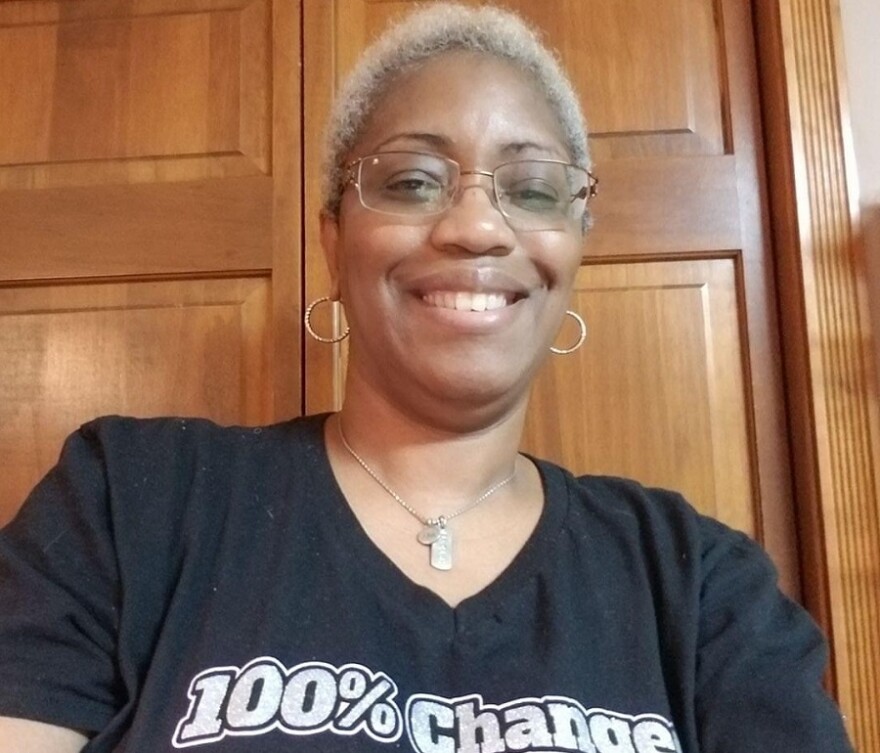COVID vaccines are still in limited supply, but health officials fear many people still won't get a shot when it's available.McLean County health officials have focused on one segment of the population that may be hardest to reach, a group that has a complicated past with the health care system.

Felicia Shaw of Bloomington is skeptical about the COVID vaccine. She traces much of that back to the Trump administration.
“Our former president, number 45, unfortunately put so much misinformation out there that it's made it hard to know if people are telling the truth,” Shaw said.
Shaw said COVID vaccines were produced so fast, some might feel like a Guinea pig getting one now. She is part of a key demographic health officials are trying to target to boost vaccine participation.
Studies show Black and brown people are more skeptical about getting COVID vaccines than the general population.
Linda Foster is president of the Bloomington-Normal NAACP. Foster said vaccine hestitancy among the Black population can be traced back long before the last administration.
“For many years that the medical field has disparately left off Black and brown people,” Foster said. “Now the idea that we are all inclusive, there’s a concern.”
There were historical atrocities such as the Tuskeegee experiment where syphilis went untreated in Black men for decades. And health disparities based on race exist to this day.
Foster said COVID-19 is just another example.
“COVID hit Black and brown people hard,” Foster said. “We were dying at a higher rate than our counterparts and nobody could explain it, other than what history has presented to us.”
The NAACP is working with the McLean County Health Department on a campaign to address vaccine hesitancy. They are hosting an online forum on Feb. 22 at 5:30 p.m.
Cory Tello from the McLean County Board of Health said the event will feature doctors and nurses of color explaining for Black and brown populations how the COVID vaccine is safe.
“That is the community we want to ensure that they can feel that they are getting trusted information, that it’s from people that look like them and understand what their hesitancies might be,” Tello said.
One of the presenters will be Dr. James Thompson. He's an immunologist from Orland Park. He spoke at a similar forum Wayman African Methodist Episcopal Church in Bloomington hosted last month.
Thompson addressed concerns about the COVID vaccine seeming rushed.
“Many people think all of this technology and information came about in one year and they think this happened too fast, but you have to go back 20 years when they started studying Messenger RNA,” Thompson explained.
Messenger RNA instructs the body to make proteins that build immunity.
Arlene Hosea is the health chair for the local NAACP. She said formal gatherings like town halls help, but informal conversations are even better.
Just like COVID-19, information is easily spread from person-to-person. Whether the information is good or bad. Hosea said she hopes to give those misinformation campaigns a dose of their medicine. She said building trust in the vaccine requires grassroots outreach, people you know and people you trust explaining why you should get the vaccine, despite a long history of medical racism.
“I find that the grapevine is a healthy vine when you need to work it,” Hosea said. “There is an informal communication channel that happens in communities and you have to find who those influencers are, who those people are that are connected,” Hosea said.
Hosea said the NAACP is working with Black churches and other leaders in the Black community to start those conversations.
“There’s always someone you may not be able to reach, but we are working every lever of communication that we have,” Hosea said.
Linda Foster of the NAACP said those Black churches can also play a key role in vaccine distribution.
“The location in which most people feel the most comfortable is their church,” Foster said. “To think that there are some options out there, I think we need to be utilizing all that we can to make sure that individuals are comfortable going to where they are going to.”
In McLean County, Black people make up about 8% of the population, but only about 3% of those have been vaccinated so far. Statewide vaccinations show a similar trend.
Arlene Hosea of the NAACP said some may want the vaccine but can’t get to a clinic.
“If we know that there are people that do not have the transportation to get to a location to get (the vaccine), then we have to brainstorm how do we help those individuals get there,” Hosea said.
Felicia Shaw of Bloomington said even though she has concerns about the COVID vaccine, she will get it when it's available to her. Shaw said she has health problems that forced her to retire early. She said it's a bigger risk not to get vaccinated.
“When I think of the vaccine for chickenpox, for measles, for the flu, the benefits have outweighed the costs,” Shaw said.
Shaw said she hopes others will overcome their own hesitations and get the vaccine when their time comes.
A survey done last month says the Black population is most likely to take a wait-and-see approach about getting a COVID vaccine, but the largest percentage of those who say they will not get the vaccine are Republicans and rural residents.
There's no subscription fee to listen or read our stories. Everyone can access this essential public service thanks to community support. Donate now, and help fund your public media.




